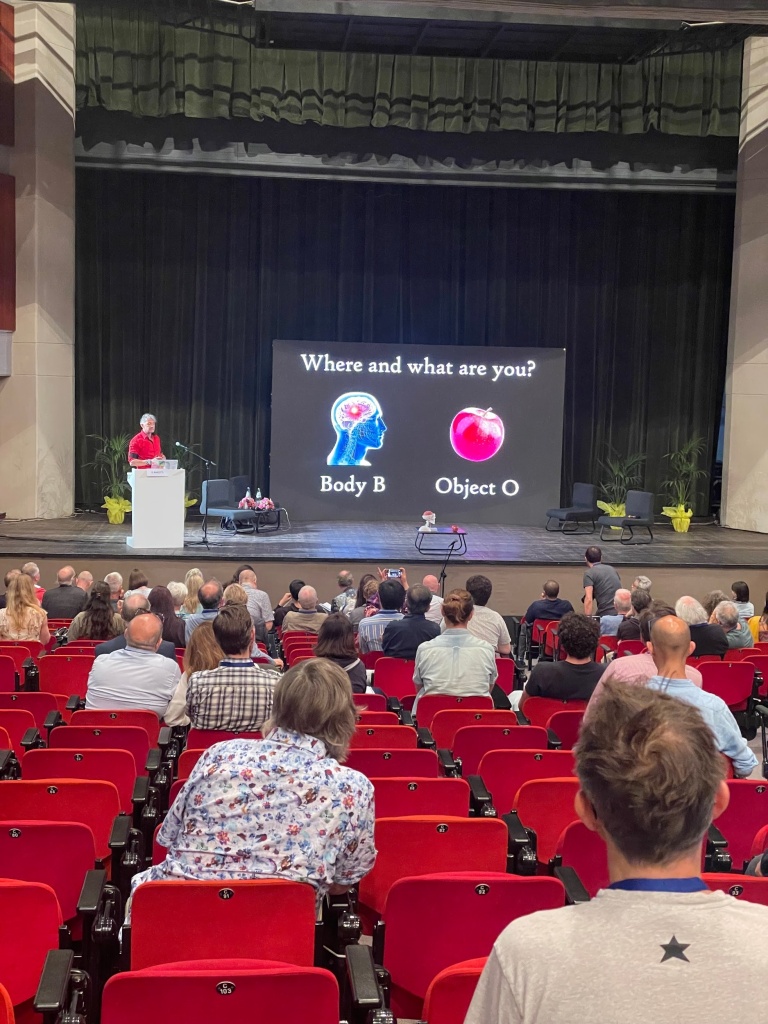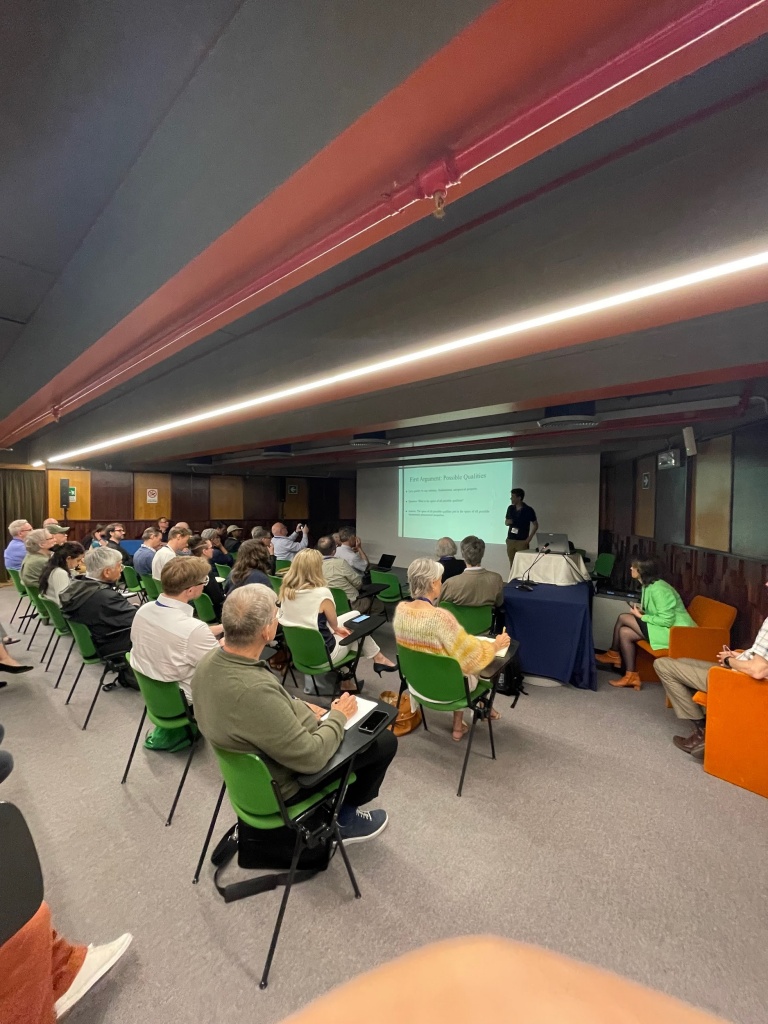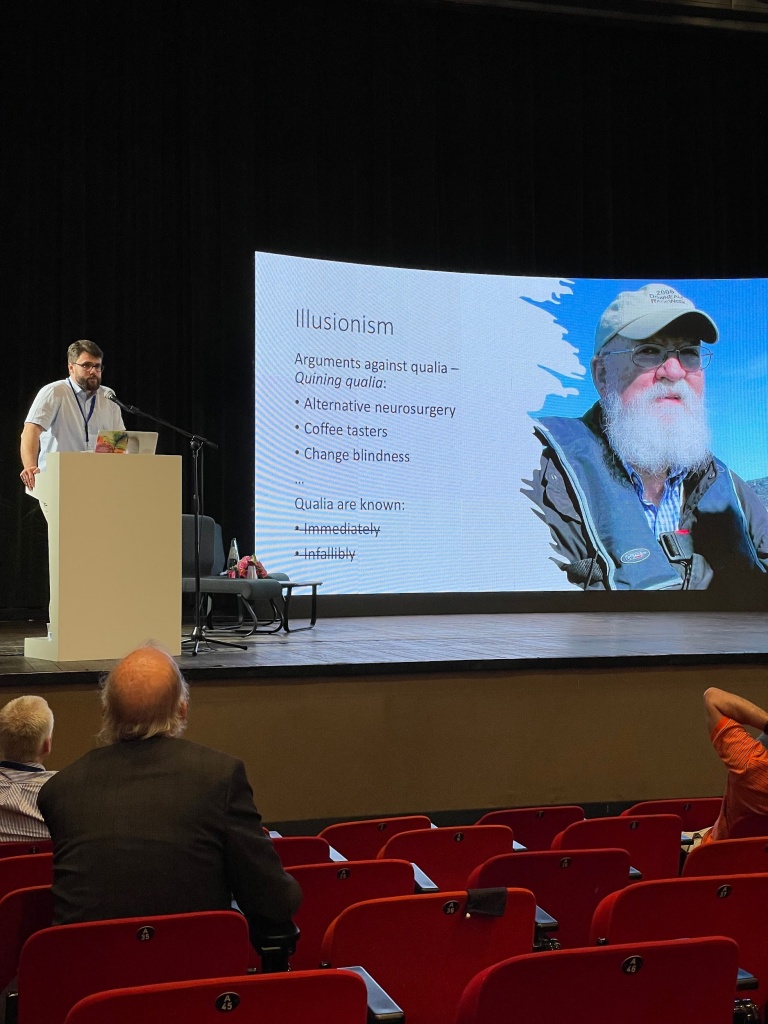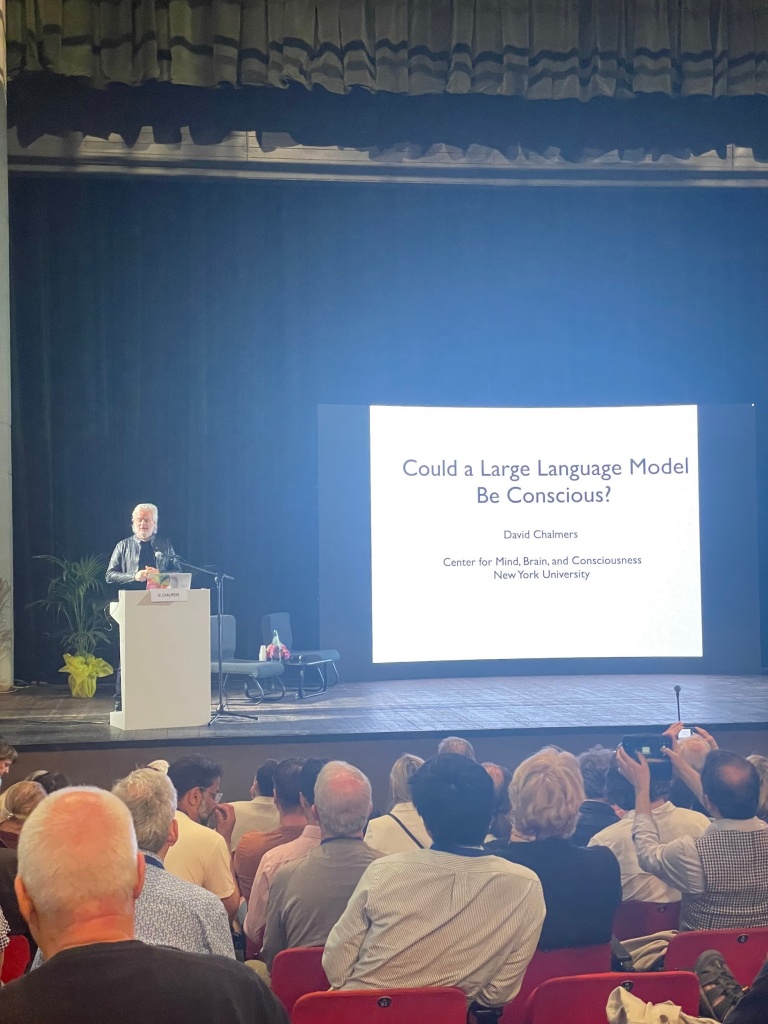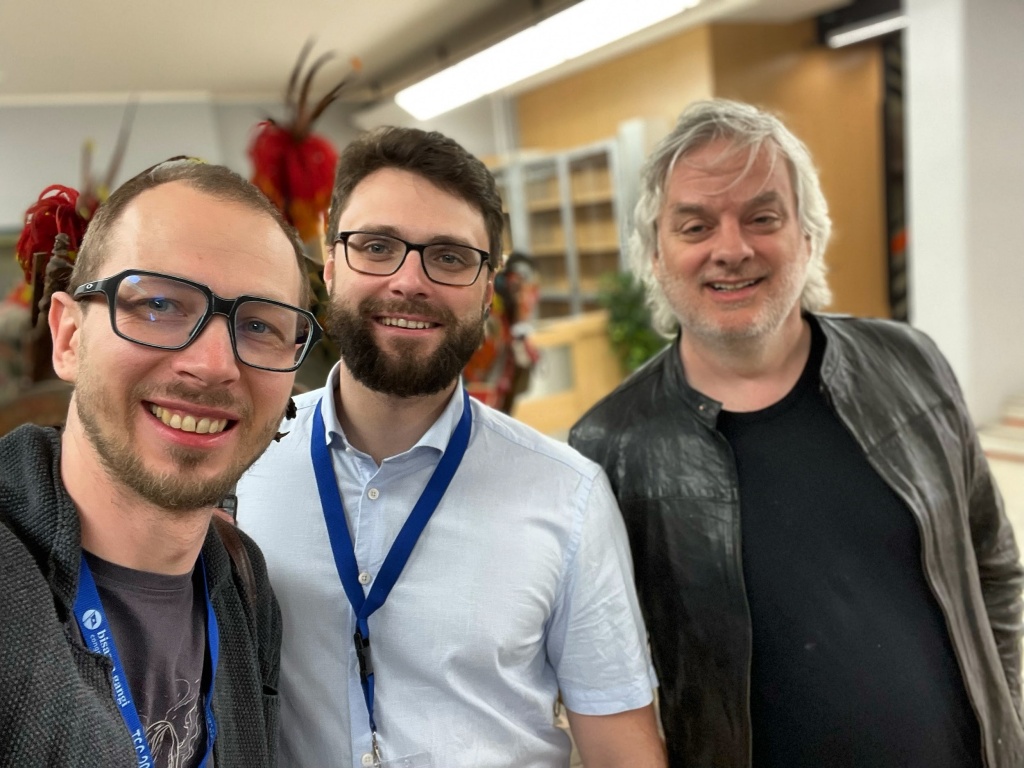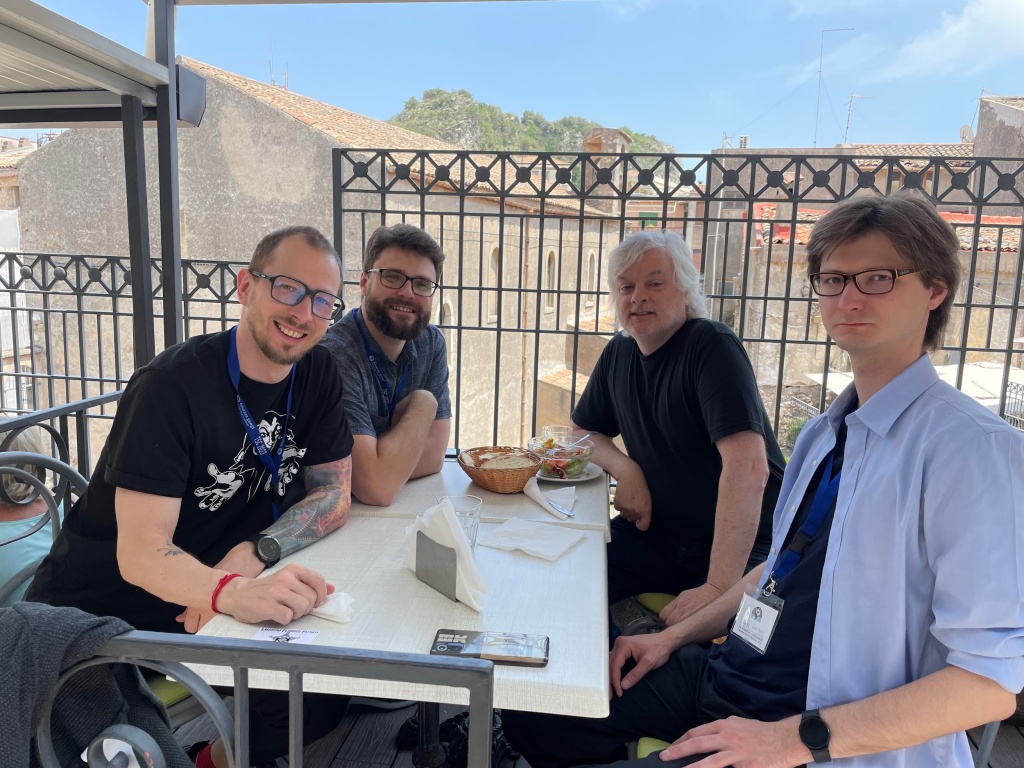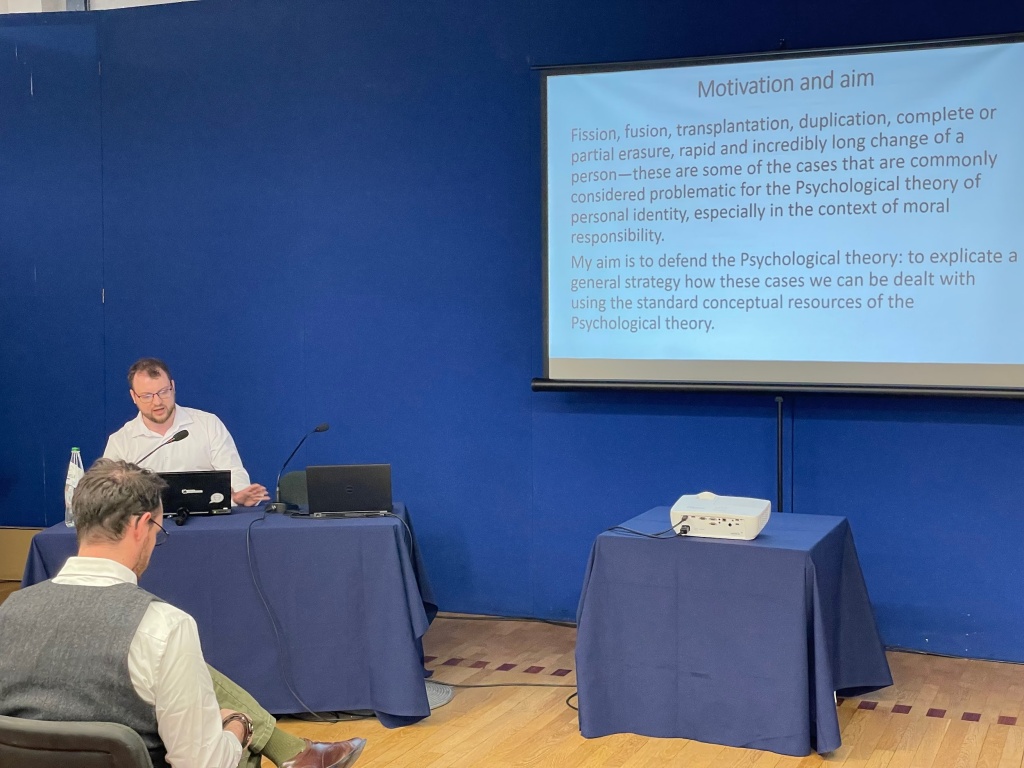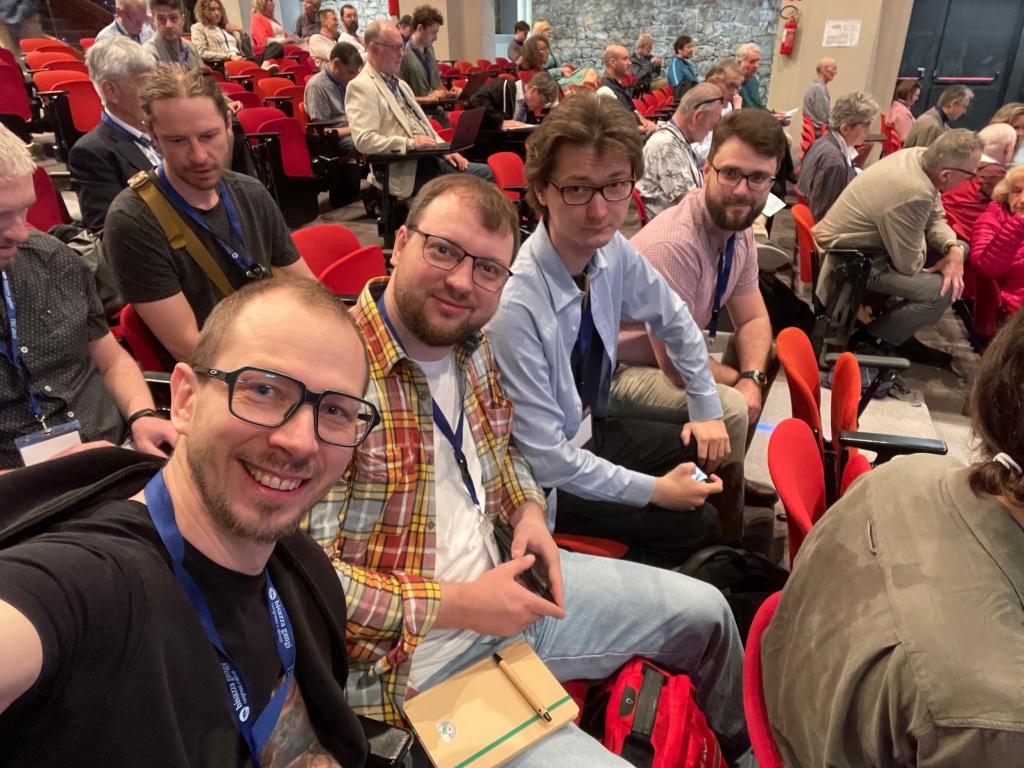


0%


From May 22 to 27, 2023, 29th international interdisciplinary conference on fundamental questions and cutting-edge issues connected with consciousness was held in Taormina, Sicily. Our employees also took part in it.
The Science of Consciousness is one of the largest and most representative conferences in the world dedicated to the studies of consciousness. It gathers specialists from a wide variety of fields from physics and mathematics to neuroscience and philosophy. It was at this conference in 1994 that David Chalmers made a historical report, in which he introduced the distinction between the Hard and the easy problems of consciousness. No doubt this conference played a significant role in consolidating consciousness researchers from all over the world. One year it is held in its "homeland" in Tucson (USA), and the other in Europe or somewhere else outside the USA.
The collection of abstracts and the conference program can be found at the link. Traditionally, plenary presentations were made by Hameroff, Penrose, Chalmers, as well as Edelman, Kriegel, Byrne, Humphrey, etc. Separately it's worth mentioning the plenary report of our colleague Academician Anokhin, Director of the Institute for Advanced Brain Research at Moscow State University. It's nice to see the international recognition of our colleague. The plenary reports will appear on YouTube soon.
On the part of the Center, Artem Besedin, Anton Kuznetsov, Evgeny Loginov and Andrey Mertsalov took part in the conference. The reports of the first three were devoted to illusionism, which denies the existence of phenomenal consciousness, considering it only as a kind of illusion — a cognitive error. Besedin defended methodological illusionism, the general idea of which is that while phenomenal consciousness is the subject of discussion and there is no good reason for it, we are in a situation where we should adhere to the methodological attitude that there is no phenomenal consciousness. Loginov showed that Moore-style arguments (roughly speaking, based on obviousness), which claim to be the basis for the existence of phenomenal consciousness, do not work, while they are designed to protect consciousness from illusionism. Kuznetsov agreed with Loginov, but put forward his own argument, according to which it is possible to defend the existence of phenomenal consciousness without postulating special obviousness or direct knowledge of consciousness, on which Moore-style arguments rely. Mertsalov's report was devoted to the problem of personal identity, where he argued in favor of a psychological approach in explaining the personal identity.
